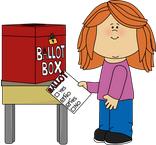2024-06-04
The First Past the Post system is regarded by many as unsatisfactory, and various countries use alternative systems designed to be "fairer" in that they give political parties seats in proportion to the numbers of votes that they receive at elections.
Sounds good, no? But it cements power into the hands of the political parties, so that independent MPs become as rare as hens' teeth.
Looking around the world, it's not obvious that these result in better outcomes. The increase in complexity simply makes it more difficult to understand (and possibly easier to obfuscate any cheating!).
Anyway, in the UK we have a system which the incumbent MPs are extremely reluctant to change, so can we the people take the initiative and use it as is today to get what we the people want?
So what is wrong with the way we work it currently?
The traditional way to view an election is in isolation ... how to get what we want from this one election? The incumbent political parties encourage this - those who run the incumbent parties don't want to lose power. From their point of view, they need to convince us to vote them back in and they don't much care how we do it.
In this narrative, a vote for a small party is "wasted" because that small party hasn't got enough support to get enough MPs to form a government. Or to get any MPs at all!
So we are encouraged in tactical voting - we vote for the least worst main party to keep the worst main party out of power. We may feel good for giving the incumbent party a hiding, but we also prevent small parties from becoming bigger parties - they never win because they never (in the absence of a single issue referendum!) get enough visible support from voters. The big parties always clean up because they always get the most votes, whether or not voters actually approve of them.
It's a tactical voting strategy that doesn't deliver a democracy that reflects the will of the people. It delivers a system where elections are lost but not won. A system for failure.
So what can we the people do to change things for the better?
We can change our perspective. Consider a string of elections (albeit 5 years apart). Our perception of the game changes because now we can see that over time, we can make the smaller parties into bigger parties.
How? Two methods, both simple, one more far-reaching.
a) The simple tactic
Do not vote tactically, vote straight for whomever we want, even when we "know" they will lose.
Never vote for any party whose policies we don't support, and therefore never vote for the least worst big party. If we don't want any of them, then don't vote at all (or spoil the paper). We do not have to vote, indeed we shouldn't vote, it only encourages them!
By this simple tactic, all votes cast count because they reflect the true scale of support for every party, large and small. The votes that we don't cast also count to remove false support from parties we don't support! Small parties can grow their vote over several elections until they are seen to have enough support to take power, and big parties can likewise visibly lose their support. It's a double-whammy, and we the people win!
b) The revolutionary tactic
Vote for an independent candidate with no party affiliation. No party affiliation means that we know that the candidate has loyalty only to us, the constituency electorate, and never to party whips.
He who controls the party whips (by whatever means, lawful or unlawful) today controls Parliament. By voting for independent candidates, we get MPs answerable to nobody except us, their constituents.
This would force a very different parliament from the parliament to which we have become accustomed. MPs would debate the issues rather than trying to score points against the "party opposite". "His Majesty's loyal opposition" would have little meaning, although obviously there would be groupings of MPs appropriate to each policy debated, much like the current APPGs - All Party Parliamentary Groups. There would be no "governing party", and no party whips controlled by who knows who.
This would ultimately force a fundamental reappraisal of how we are governed, how Parliament should function, and whether "Government" should be a parliamentary function at all - perhaps Parliament should revert to being simply a legislative chamber, with government ministers being subject to a separate electoral system, perhaps chosen from elected MPs or perhaps by some other method?
Well, what are we waiting for?!



